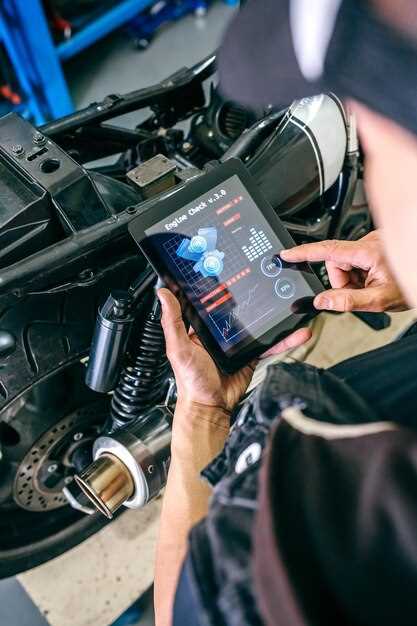
Tuning your car’s ECU (Engine Control Unit) can significantly enhance its performance, efficiency, and overall driving experience. However, with numerous options available, selecting the best ECU tune can be overwhelming. Understanding the specific needs of your vehicle, your driving style, and desired outcomes is crucial in making an informed decision.
First and foremost, it’s imperative to recognize that not all ECU tunes are created equal. Various brands and tuning solutions cater to different vehicle models and performance goals. Whether you’re looking to improve horsepower, torque, or fuel efficiency, each tune will have its unique advantages and limitations. Familiarizing yourself with the different types of tuning available can set the foundation for your selection process.
Additionally, you’ll want to consider compatibility with your vehicle’s engine and any modifications that may have been made. Aftermarket parts, such as exhaust systems or intake modifications, may require a specific tune to maximize performance. Thus, thorough research and consultation with tuning professionals can help ensure that you choose the right ECU tune tailored to your car’s specifications.
Understanding Your Vehicle’s Performance Goals

Before selecting the best ECU tune for your car, it is crucial to understand your performance goals. Identifying these objectives will guide your tuning decisions and help you achieve optimal results. Performance goals can vary significantly depending on your driving style, whether you’re seeking improved speed, acceleration, fuel efficiency, or off-road capabilities.
Firstly, consider whether you want to enhance your car’s overall power output. If your goal is to increase horsepower and torque, a performance tune focusing on fuel maps, ignition timing, and air intake efficiency is essential. This type of tuning can transform the driving experience, providing a noticeable boost during acceleration, especially in high-stress situations like overtaking or racing.
Alternatively, if fuel efficiency is your main concern, a different tuning approach may be required. Eco-tuning focuses on optimizing combustion processes to maximize mileage without sacrificing too much performance. This can involve adjustments to the engine’s fuel delivery and timing, ensuring smoother operation while helping you get more miles per gallon.
If you’re an off-road enthusiast, your needs will differ as well. For off-road performance, tuning might involve enhancing the car’s torque output at lower RPMs, providing better control and power on rugged terrains. Adjustments to traction control settings can also improve the vehicle’s capability to navigate challenging landscapes.
Consider also your intended use for the car. Regular street driving might benefit from a balanced tune that enhances both performance and comfort, while track-focused vehicles may need aggressive tuning to extract maximum performance. Whatever your goals, defining them clearly will ensure that the ECU tune you select aligns with your specific aspirations.
In summary, understanding your performance goals is the first step in selecting the right ECU tune. Whether you’re aiming for increased power, better fuel efficiency, or enhanced off-road capabilities, identifying your priorities will facilitate a more informed and effective tuning decision.
Comparing Different Tuning Options and Their Benefits
When it comes to enhancing the performance of your car, selecting the right ECU tuning option is crucial. There are several types of tuning available, each with its own unique benefits and considerations. Understanding these options can help you make an informed decision that aligns with your performance goals.
The first option is piggyback tuning. This method involves adding a secondary device that modifies the signals between the ECU and the engine components. Piggyback tuning is generally less invasive and allows for adjustments without completely rewriting the factory map. It can provide noticeable performance gains, particularly for turbocharged engines, making it a popular choice among enthusiasts looking for a quick boost.
Next, we have standalone tuning. This option entails replacing the factory ECU with a completely new unit that offers customizable settings tailored to specific performance needs. Standalone tuners provide the utmost control over engine parameters, enabling precise tuning for high-performance applications. This option, however, requires technical expertise and may involve a steeper learning curve, but the performance benefits can be significant for track-focused vehicles.
Another popular choice is reflash tuning, where the existing ECU firmware is rewritten to optimize performance. This approach allows for precise modifications to fuel maps, ignition timing, and other vital engine functions. Reflash tuning often results in a smoother driving experience and improved fuel efficiency alongside enhanced power. Many manufacturers provide updated firmware, making this a relatively simple option for many vehicle owners.
Last but not least, there’s custom tuning, which is performed by professional tuners who analyze the car’s performance data in real-time. This tailored approach ensures that all aspects of the vehicle are considered, including specific modifications and driving conditions. Custom tuning can yield remarkable results, providing an optimized balance of power, efficiency, and drivability that off-the-shelf tunes may not achieve.
Ultimately, the choice of tuning method will depend on your individual performance objectives, technical expertise, and willingness to invest in modifications. Each tuning option can unlock significant benefits for your car, so careful consideration is essential to select the most suitable one for your needs.
Consulting Professionals vs. DIY Tuning: What to Consider

When deciding between professional ECU tuning and a do-it-yourself (DIY) approach, several factors must be taken into account. Each option presents unique advantages and potential pitfalls that can significantly affect your car’s performance.
Consulting professionals often guarantees a higher level of expertise. Professional tuners possess the knowledge and experience necessary to optimize your vehicle for performance without compromising reliability. They typically use advanced diagnostic tools and tuning software that can provide precise adjustments tailored to your specific make and model.
Additionally, professionals can offer valuable insights into your car’s capabilities and limitations, helping you avoid common pitfalls, such as excessive modifications that can lead to engine damage. However, professional tuning usually comes at a higher cost and might require you to wait for appointments, which can be inconvenient.
On the other hand, DIY tuning allows car enthusiasts to take control of the tuning process, which can be appealing for those who enjoy hands-on work. With the right resources and knowledge, you can modify your vehicle’s performance at a fraction of the cost. There are numerous online communities and tutorials available, making it easier for beginners to learn about tuning principles.
However, DIY tuning carries significant risks. A small mistake in the ECU settings can lead to severe engine problems or inefficiencies. It’s crucial to have a solid understanding of how changes affect vehicle performance to avoid potential issues.
In summary, if you prioritize expertise and reliability in your car’s tuning, consult with professionals. Conversely, if cost savings and hands-on involvement appeal to you, and you are willing to invest time in learning, DIY tuning may be the right choice. Ultimately, weigh your knowledge, budget, and performance goals before making your decision.



